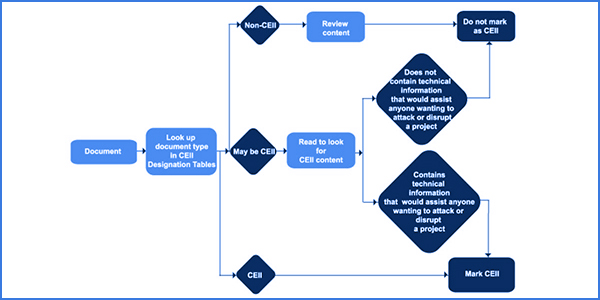By Rich Heidorn Jr.
Environmental and public policy advocates last week challenged the Department of Energy’s proposed procedures for designating critical electric infrastructure information (CEII), saying it denies due process and could be a Trojan horse for the department’s efforts to subsidize coal and nuclear generation.
DOE announced its proposed procedures Oct. 29 under the 2015 Fixing America’s Surface Transportation (FAST) Act, which gave both FERC and the secretary of energy authority to designate information as CEII and thus exempt from disclosure.
Among those weighing in in support of the rule before the comment period closed last week were the Edison Electric Institute, which said the rules would help encourage “information sharing frameworks” between government and private industry that are essential for responding to cyberthreats. PJM also filed in support.
But Earthjustice, the Union of Concerned Scientists, and Public Citizen filed joint comments opposing the rule, calling it “a breathtaking” overreach of the department’s authority that “would inappropriately broaden the department’s authority to restrict access to information critical for informed debate on issues important to the public.”
The groups said although the FAST Act gives both FERC and DOE authority to designate information as CEII, only FERC has authority to set the “criteria and procedures” for doing so. FERC, which issued its procedures in 2016, rejected a rehearing request on its order in May. (See FERC Clarifies CEII Rules, Denies Rehearing.)
DOE proposed that industry and other stakeholders could request information they submit to DOE be “pre-designated” as CEII and remain so on an “interim” basis pending DOE review, preventing disclosure under the Freedom of Information Act (FOIA).
“Information that is pre-designated or provided interim treatment would be handled like CEII indefinitely; the department commits only to ‘endeavor to make a determination as soon as practicable’ regarding its actual status as CEII,” the groups said. “… The proposed rule would functionally shift the role of designating CEII from the department to industry stakeholders, as the assertions of entities submitting the information provides the basis for treatment as CEII indefinitely.”
The rule is unnecessary, the groups said, because FOIA rules and FERC’s CEII procedures already allow for review of sensitive information before its release.
Tyson Slocum, director of Public Citizen’s Energy Program, said the rule would give DOE the “foundation” to seek coal and nuclear bailouts on national security grounds. “Right now, DOE lacks a process by which it can designate infrastructure on national security or national defense grounds,” Slocum said in an email. “This rule would provide that authority.”
‘Critical Defense Facilities’

In June, a leaked “pre-decisional” memo proposed that DOE require RTOs and ISOs to purchase energy or capacity from “fuel-secure” generators at risk of retirement for 24 months while the department identifies “Critical Defense Facilities” served by “Defense Critical Electric Infrastructure (DCEI).” (See Trump Orders Coal, Nuke Bailout, Citing National Security.)
In October, numerous press reports indicated that the White House had rejected DOE’s proposal following opposition from the National Security Council and National Economic Council. But there has been no official word on the plan’s demise. (See Chatterjee Dodges as DOE Spins on Coal Bailout.)
“Should the DOE be granted the authority it seeks in this proposed rulemaking, then the agency can designate as secret the methodology used to determine that certain infrastructure is critical for defense or national security,” Slocum said. “Once it has made that designation, the agency could then justify multi-billion-dollar bailouts to the owners of such facilities, and groups like Public Citizen would be unable to challenge it, since the underlying justification would now be classified. Therefore, stopping this rule is central to stopping the Trump administration’s coal and nuclear bailout.”
‘Much Care’
In contrast, EEI said it generally supports the proposal. “It is clear that much care and thought went into the preparation of the proposed rule, and the tone set demonstrates the department’s commitment to promoting public/private sector information sharing,” EEI said. “EEI supports this commitment because public and private sector entities must partner to protect the nation’s critical electric infrastructure and public/private information sharing is a crucial element to achieving that goal.”
However, EEI said DOE should specify deadlines for acting on CEII requests and ensure all DOE offices, FERC, the Department of Homeland Security and Nuclear Regulatory Commission use consistent criteria in making designations.
PJM also supported the proposal and said it should be amended to include penalties for willful disclosures of sensitive information.
“The final rule should ensure that disclosure of this information is subject to a DOE review of the requester’s actual ‘need to know’ this highly sensitive information,” PJM said. “Too often in the past, CEII disclosure rules have been written by [FERC] and other agencies to establish procedures with a going-in assumption of implementing the requester’s right to know the critical information in question.”





